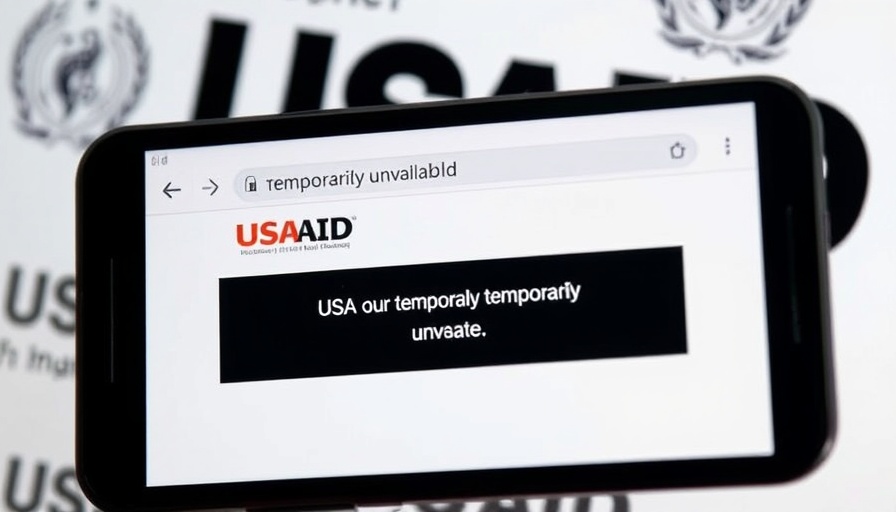
The Current Crisis: USAID Faces Unprecedented Cuts
The recent directive from the Trump administration to drastically cut personnel at the U.S. Agency for International Development (USAID) has sent shockwaves through the organization and beyond. As of midnight Friday, nearly 13,000 employees are facing administrative leave, with less than 300 deemed essential by Secretary of State Marco Rubio. This decision not only disrupts ongoing humanitarian efforts worldwide but raises critical questions about the future efficacy of U.S. foreign aid.
A Historical Context: The Role of USAID in Global Development
For over six decades, USAID has been pivotal in providing support for emerging economies and responding to humanitarian crises. The agency plays an essential role in initiatives ranging from health care, education, and economic development to crisis response and poverty alleviation. Historically, the bipartisan support for USAID has remained strong, highlighting the acknowledgment of its importance in maintaining both global stability and the United States’ image abroad.
Impacts & Relevance: Why This Matters to Global Citizens
The repercussions of these cuts extend far beyond the struggling employees. Countries relying on USAID for aid and development will feel the immediate effects of reduced personnel and funding. From combating child and maternal mortality rates to defending against infectious diseases in nations most vulnerable, the reductions threaten to unsettle decades of progress and exacerbate already dire situations.
The Human Toll: Voices from the Field
As internal emails revealed the chaos within USAID, employees expressed their fears and frustrations over the cuts. One staffer likened the situation to a horror film, capturing the emotional strain inflicted upon those dedicated to serving communities in need. The distressing imagery of workers losing access to email accounts — and by extension, their roles and purpose — starkly illustrates the human cost behind bureaucratic decisions.
Comparative Analysis: What’s Happening Globally?
In stark contrast to the U.S., countries like Germany and Canada are increasing their international aid budgets, further diminishing USAID’s standing in global humanitarian responses. While the U.S. appears to withdraw, other nations are stepping up—creating an imbalance that may alter traditional alliances and the dynamics of international cooperation.
Future Predictions: A Shift Towards Privatization of Aid?
As USAID faces these dramatic cuts, it raises a critical concern: are we witnessing a shift towards a privatized model of aid distribution? With reduced governmental support, there exists a risk that NGOs and private entities may fill the gap, potentially marking a transformation in how foreign aid is conceptualized and executed. Will the prioritization of corporate interests supersede humanitarian objectives? This evolving landscape could redefine the nature of international assistance.
Challenges Ahead: Addressing Misconceptions and Myths
Despite the dire situation, many people are unaware of the essential roles played by USAID staff on the ground. Common misconceptions surrounding foreign aid fuel the narrative that such funding is merely a drain on American resources. In reality, these investments yield significant returns in global stability, trade opportunities, and humanitarian goodwill that ultimately benefit U.S. interests as well.
Engaging Stakeholders: The Response of the Business Sector
The connectivity between humanitarian assistance and the business sector cannot be understated. Companies specializing in health care and technology can potentially bridge the gap left by USAID’s cuts. Innovative partnerships with NGOs could provide a model for sustainable business operations while addressing pressing global challenges.
In conclusion, the potential fallout from these cuts urges an introspective evaluation of priorities and strategies. As concerns mount over global humanitarian efforts, the focus on collaborative approaches between government and private sectors will be essential for addressing the gaps left by reduced staffing at USAID. Understanding the stakes and fostering dialogue among stakeholders is key to navigating the uncertain waters ahead.
 Add Row
Add Row  Add
Add 




Write A Comment